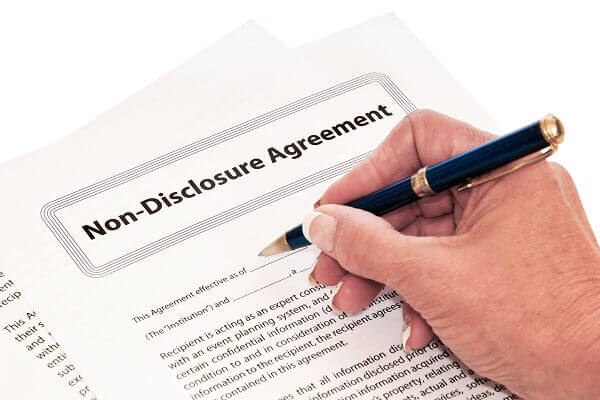Did you sign an nda? attorneys Weigh in on the matter
Non-Disclosure Agreements (NDAs), also known as confidentiality agreements, are increasingly common, especially at startups and tech companies. While many people make the mistake of quickly signing the documents without reading them (or after a quick skim), it is vital to closely read these documents. Not reading NDA contracts closely could mean not understanding the terms correctly and stumbling into litigation down the road.
Here are four questions you should ask as you are reading - and before you sign - an NDA.
Who does this confidentiality agreement involve?
Who is giving the information and who is receiving it? Or are both parties exchanging sensitive information? You can usually find this information under the parties of the agreement section. The party giving the information may be called the disclosing party, while the party receiving the information is the recipient.
It’s imperative to understand that other parties might also be involved. Are you able to share the information you learn with certain other parties, such as colleagues, affiliated businesses, or certain clients?
What information does this confidentiality agreement involve?
Obviously, not every word that the disclosing party says is confidential. What specific information is deemed confidential, and why? Is it a certain document, a specific project, or a company secret? Is certain oral information confidential?
Be aware that the entity creating the NDA will make terms as broad as possible to benefit their cause. Don’t be afraid to ask them to be more specific regarding what information is involved in the confidential agreement and what is free to share.
In most cases, an NDA excludes information that is public knowledge, information that the recipient figures out for themselves, or information that the recipient finds out from a third party who did not sign an NDA.
How long does the confidentiality agreement last?
If the NDA does not mention the terms of the agreement, you may wish to add them. With issues related to technology, most confidential information will be outdated in a few years. With new products, information will likely not need to remain confidential after the product launch. Don’t be afraid to ask for specific terms and to explain why you’d like them.
Is this confidentiality agreement appropriate?
Confidentiality agreements are becoming more common. In fact, in addition to having to sign NDAs when you begin work or when you are partnering with another business, don’t be surprised if you are also handed a confidentiality agreement before a big meeting or an interview. When are these agreement appropriate? That’s up to you to decide. But never forget that you can always ask for the details of the contract to be changed before you sign.
Contact A California Attorney Today
When it comes to important confidentiality agreements or NDAs, you may wish to review the contract with your attorney before signing. It can mean the difference between a smart business deal and a poor choice that could cost you time, money and your reputation.
To speak to an attorney in Southern California about writing or negotiating an NDA, please contact CKB VIENNA today.

